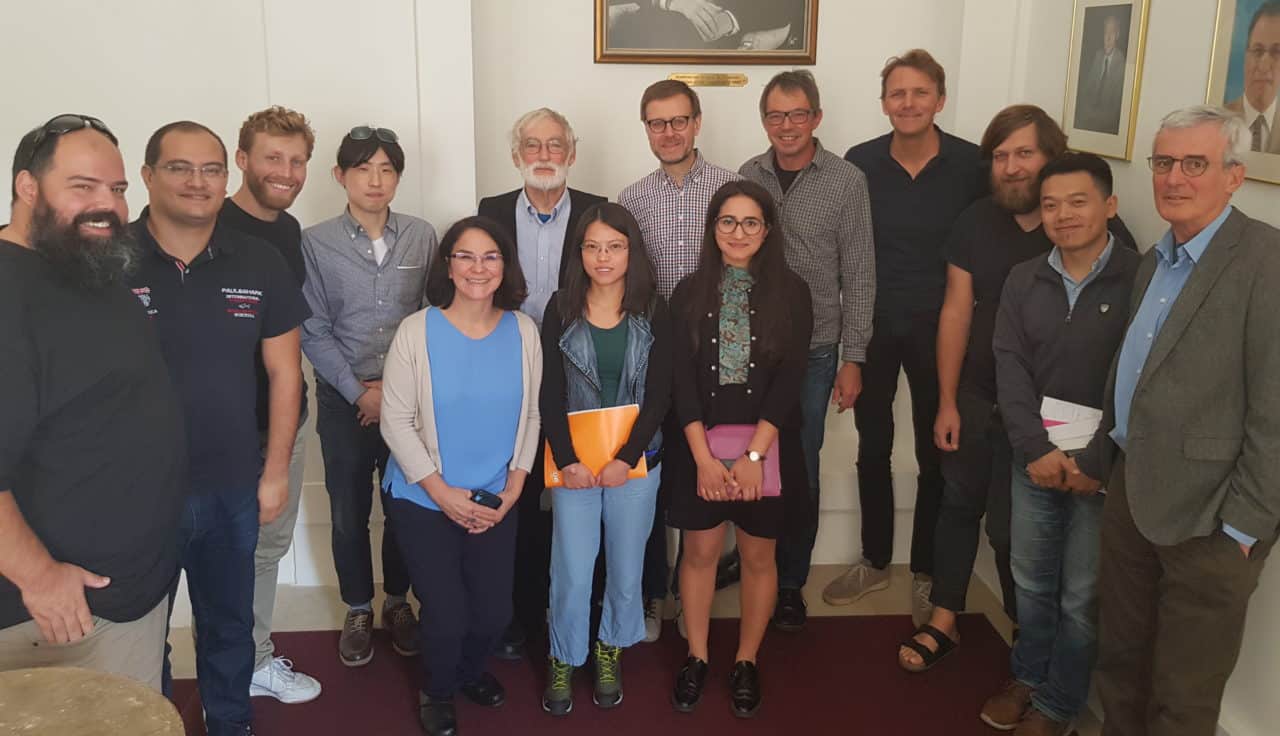Monika Bauer, IIASA Network and Alumni Officer, interviewed alumnus Dennis Meadows during his recent visit to IIASA.
“It’s a great pleasure to be back at IIASA because the institute really had a big impact on my professional life,” said Dennis Meadows, coauthor of the seminal book Limits to Growth, after his lecture to IIASA staff during a recent visit to the institute. “I came to IIASA, and it gave me so many new ideas and contacts. It became the fuel for my professional activities for a long time.”
Meadows visited the IIASA Energy Program in 1977 when Roger Levien was director, and he says that Levien greatly impacted the way he viewed problems. In his lecture titled, Lessons from 50 years of model-based policy advocacy, he pointed out that Levien looked at problems as universal or global, and that he uses the criteria Levien passed on to him in what he calls “problem selection” to this day. Meadows also spent some time at the institute from 1983-1984 when C.S. Buzz Holling was director.
During his lecture, Meadows highlighted the idea of using the concept of an “invisible college” as a strategy to implement academic work. He explained that an “invisible college” usually constitutes a group of about 50 people connected with an issue, who, while they do not necessarily all have to agree on the issue or do the same work, can collectively come up with a solution.
Meadows created his version of an invisible college through the Balaton Group, a global network for collaboration on systems and sustainability that he founded in 1982. He says that the network is meant to “connect and empower people who will go back home and do good things”. Meadows stopped by IIASA on his way to the group’s annual retreat in at Lake Belaton in Hungary, where 50 leading scientists, teachers, consultants, writers, and managers annually get together to discuss topical issues on their own costs. According to Meadows, this in itself shows the value individuals see in the meetings. The results of past meetings are outlined on the group’s webpage.
When asked about his key messages for IIASA, Meadows’ answers focused on the institute’s alumni network and exploring a deeper understanding of resilience.
“The incredible power of IIASA lies in its alumni, rather than in its models. You create the alumni network through the process of creating models. IIASA doesn’t have many models, but it has thousands of alumni. One of the first things I would look at is how to link alumni more strongly together, so they could help each other. I still have affection for the institute and respect for what it does, and I’m sure that my opinion is shared by many.”
His second take-away for IIASA concerns building a deeper expertise on resilience. “Sustainable development is something that is hard to realize, while there is no doubt that shocks will continue to occur, and there is no unified theory in resilience yet. In my opinion, IIASA has an opportunity to tap into a huge legacy of understanding that goes back to Buzz Holling’s work.”
Note: This article gives the views of the author, and not the position of the Nexus blog, nor of the International Institute for Applied Systems Analysis.



You must be logged in to post a comment.